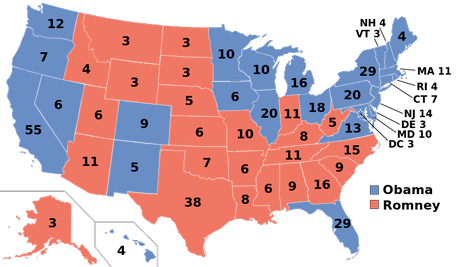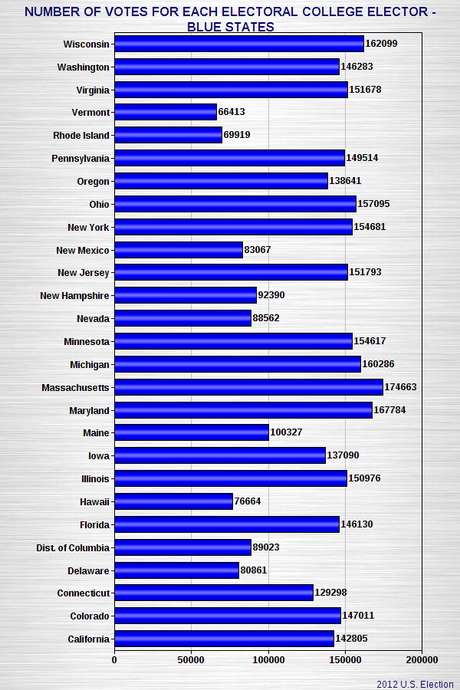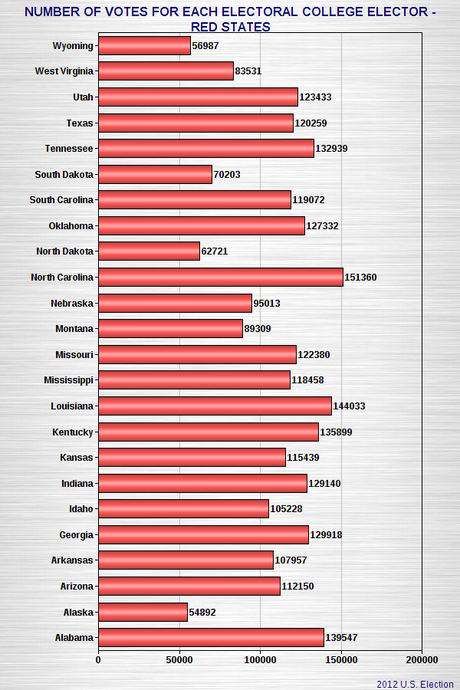
The United States sells itself as the bastion of true democracy. And in the governmental systems it has imposed on other countries (like Iraq and Afghanistan), it has trumpeted the democratic concept of "one man - one vote". Unfortunately, the United States doesn't practice what it preaches. Because "one man - one vote" is a foreign concept in U.S. presidential elections. Instead, our president's are chosen by an Electoral College -- with the number of electors for each state being equal to the number of senators and representatives that state has.
This system has several flaws. One flaw is that it is possible for a presidential candidate to win the Electoral College vote and become president, while losing the popular vote to his opponent. This has happened several times in our election history (1824, 1876, 1888, and 2000), making a joke of the "one man - one vote" concept.
Another flaw is that it causes many votes to be worthless, and not counted in picking a president. If a person votes for a candidate that does not win their state, then their vote is meaningless (since the other candidate will receive all electoral votes from that state). The only votes that matter in a state are those cast for the candidate who wins that state.
And there is a third flaw that I had not considered before. Ryan Cooper in The Week points out that even if a person votes for the winner in their state, their vote may not count as much (have the same weight) as a vote cast for the winner in another state. He divided the number of eligible voters in each state by the number of electors (in the Electoral College) that state has -- and discovered that it takes a lot more votes per elector in some states than in other states. You can go here to see his charts and a discussion of his results.
He has a point. It takes far less votes per elector for some states, and that means each citizen vote cast in those states carries more weight than a citizen vote cast in another state. I took Cooper's idea one step further and did some computations to show just how much weight each vote carried in each state in the 2012 presidential election. I divided the number of votes the winning candidate in each state got by the number of electors in that state. The result showed a wide range in the value of a vote between the states -- and those results are shown in the two charts below.
This first chart shows the weight of each vote in the blue states -- votes cast for President Obama. If you voted for Romney in these states, then your vote didn't count at all. But note the huge difference in the value of a vote even for those who voted for the president.

And here is the result for those who voted for Mitt Romney in the red states (the states he won).

This is ridiculous, and it makes a mockery of our democracy. In a real democracy, every citizens vote should count exactly the same as that of every other citizen -- and that will never happen as long as we have the silly Electoral College. It is time to dump this archaic and obsolete system, and elect our president's by the popular vote -- with the person getting the most citizen votes being the winner.

